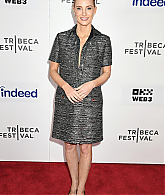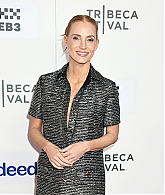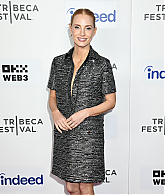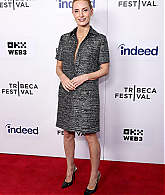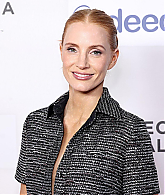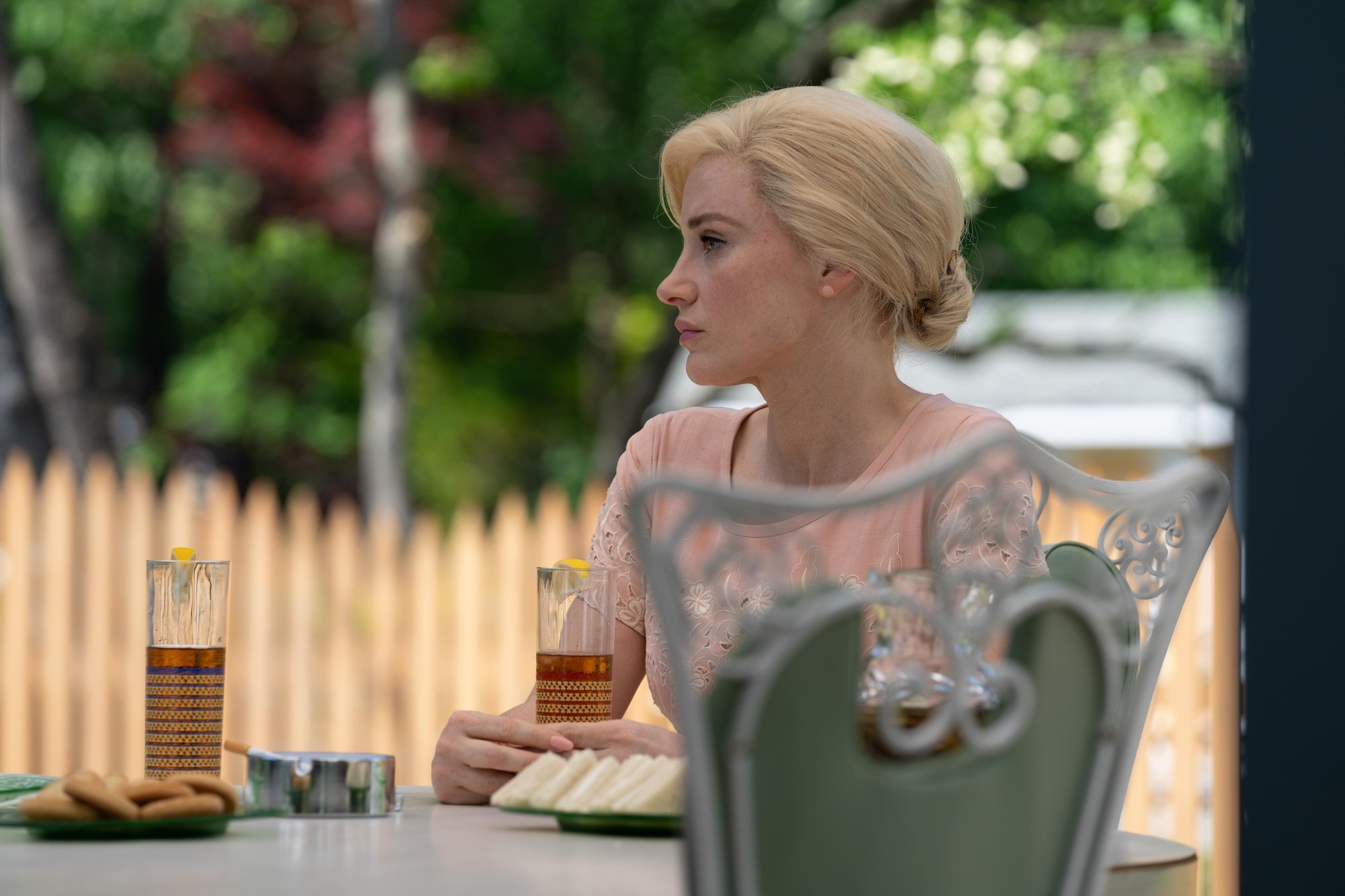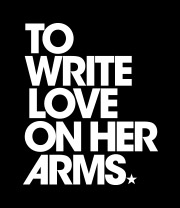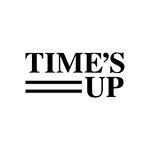 elcome to Jessica Chastain Network, your oldest and most complete resource dedicated to Jessica Chastain. You may better remember her as Molly Bloom in Molly's Game or Maya in Zero Dark Thiry. Academy Award winner for The Eyes of Tammy Faye, Jessica spans her career from big to small screen, seeing her not only in movies like The Help, The Debt, Miss Sloane, Woman Walks Ahead, The Zookeeper's Wife, The Good Nurse, she also played some iconic roles for series like Scenes from a Marriage and George & Tammy. Recently she registered a podcast series, The Space Within, and had a role in Memory and Mothers' Instinct. This site aims to keep you up-to-date with anything Mrs. Chastain with news, photos and videos. We are proudly PAPARAZZI FREE!
elcome to Jessica Chastain Network, your oldest and most complete resource dedicated to Jessica Chastain. You may better remember her as Molly Bloom in Molly's Game or Maya in Zero Dark Thiry. Academy Award winner for The Eyes of Tammy Faye, Jessica spans her career from big to small screen, seeing her not only in movies like The Help, The Debt, Miss Sloane, Woman Walks Ahead, The Zookeeper's Wife, The Good Nurse, she also played some iconic roles for series like Scenes from a Marriage and George & Tammy. Recently she registered a podcast series, The Space Within, and had a role in Memory and Mothers' Instinct. This site aims to keep you up-to-date with anything Mrs. Chastain with news, photos and videos. We are proudly PAPARAZZI FREE!

 elcome to Jessica Chastain Network, your oldest and most complete resource dedicated to Jessica Chastain. You may better remember her as Molly Bloom in Molly's Game or Maya in Zero Dark Thiry. Academy Award winner for The Eyes of Tammy Faye, Jessica spans her career from big to small screen, seeing her not only in movies like The Help, The Debt, Miss Sloane, Woman Walks Ahead, The Zookeeper's Wife, The Good Nurse, she also played some iconic roles for series like Scenes from a Marriage and George & Tammy. Recently she registered a podcast series, The Space Within, and had a role in Memory and Mothers' Instinct. This site aims to keep you up-to-date with anything Mrs. Chastain with news, photos and videos. We are proudly PAPARAZZI FREE!
elcome to Jessica Chastain Network, your oldest and most complete resource dedicated to Jessica Chastain. You may better remember her as Molly Bloom in Molly's Game or Maya in Zero Dark Thiry. Academy Award winner for The Eyes of Tammy Faye, Jessica spans her career from big to small screen, seeing her not only in movies like The Help, The Debt, Miss Sloane, Woman Walks Ahead, The Zookeeper's Wife, The Good Nurse, she also played some iconic roles for series like Scenes from a Marriage and George & Tammy. Recently she registered a podcast series, The Space Within, and had a role in Memory and Mothers' Instinct. This site aims to keep you up-to-date with anything Mrs. Chastain with news, photos and videos. We are proudly PAPARAZZI FREE!
Jessica Chastain Works Harder Than You
Jack Smart
March 30, 2017
Article taken from Backstage.
There are working actors and then there are those who, like Jessica Chastain, take that term to an entirely new level.
“I’m a true believer that you get out of something what you put into it,” says Chastain, who has put in enough work in the last six years to earn more than 20 film credits, two Oscar nominations, a Golden Globe, a SAG Award, and a devoted following; no sooner have movie buffs finished marveling at one of her chameleonic feats of nuance than she’s back on the big screen, delivering another.
Asked if she ever takes vacations between filming, Chastain protests with a laugh, “Last year I took four months off!” She pauses. “But I also did four movies. So I do work a lot.”
It’s a reflection of that busy schedule that she’s squeezing in an interview while being driven from one engagement to the next. “Do you want your seat warmer on?” she asks with a grin as midtown Manhattan crawls past the car windows. A self-described “vegan girl from Northern California,” Chastain pokes fun at her own lilting voice—“I don’t use my consonants very much”—and fangirls out when discussing her favorite actors (Sarah Paulson, Viola Davis, and her college friend Oscar Isaac among them).
But beneath her mellow demeanor and porcelain features are the qualities that make Chastain such a prolific actor: fearlessness, burning curiosity, and a relentless commitment to untold stories—particularly those based on real women. “I’m really inspired by stories I didn’t know about,” she says. When reading scripts, she asks questions. “I look at all the ingredients of a film and say, ‘Is this a positive thing that I’m putting into the world? Is there honor and respect in the way the story is being told about them? And would they approve of that?’ ”
Take Antonina ?abi?ski, the subject of Niki Caro’s “The Zookeeper’s Wife” (to be released by Focus Features March 31). In Nazi-occupied Poland, she and her husband, Jan ?abi?ski, director of the Warsaw Zoo, secretly provided temporary shelter to hundreds of Jews, hiding them underground in abandoned animal cells for years. Angela Workman’s page-to-screen adaptation of the Diane Ackerman biography stars Chastain as a different kind of World War II hero, resisting Nazi Germany with compassion rather than aggression.
During her extensive research, the actor met with Antonina’s daughter Teresa, who talked about her “bringing beauty in a time of ugliness,” she remembers. “Her entire life, she never saw her mother wearing pants. Which was really surprising to me, because how do you work in a zoo and not wear pants?”
Chastain readily admits animals were one of her main reasons for signing on to the project in 2013. She had just wrapped the brutally intense “Zero Dark Thirty,” Kathryn Bigelow and Mark Boal’s retelling of the CIA’s hunt for Osama bin Laden. “If you’re studying puppies for three months, you’re going to be in a good mood,” she points out. “But if you’re studying something darker in nature, you feel the weight of it.”
Fresh off an Academy Award nod for leading actress, she begged her agents to find “a ‘Gorillas in the Mist’ script out there,” which made “The Zookeeper’s Wife” an ideal choice. In addition to shining a spotlight on another little-known part of history, the film’s opening sequence would have Chastain feeding apples to a hippopotamus, cuddling lion cubs, and biking alongside a camel. Other than a computer-generated baby elephant, each of Chastain’s mammalian co-stars existed in the flesh.
“I didn’t realize,” she says, leaning in, “zebras are craaazy.”
Caro uses the word “otherworldly” to describe Chastain’s care for the zoo’s inhabitants. “I was unprepared for just how much of an animal whisperer she is,” says the director. “She has a very rare gift, and it’s the same gift Antonina possessed…. A lot of people love animals, but there are very few people in the world who have that connection.”
“It’s a beautiful thing to learn about because the energy is contagious,” explains Chastain. “If you’re anxious, they’re going to be anxious. If you’re calm and loving, they’re going to be. You have to just be present, just feel your feet rooted in the ground. Breathe.”
“The Zookeeper’s Wife” is also that rare Hollywood endeavor led almost entirely by female filmmakers. “All those heads of department were women,” says Chastain. “And I’ve never been on a set like that. I didn’t even know there was such a thing as a female stunt coordinator!” Even so, she adds, around three-quarters of the crew were men. “There’s still a long way to go.”
After a year that culminated in the historic Oscars victory of “Moonlight,” Hollywood has taken baby steps—if not quite great strides—in diversity in front of and behind the camera. A vocal advocate for inclusion in entertainment, particularly for women in film, Chastain aims to do what she can as an actor and producer (her all-female production company, Freckle Films, develops scripts about women) to continue such steps. “If you’re part of the industry then you’re part of the problem” is her personal call to arms.
“This year’s amazing, but there’s a lot of congratulating going on,” she says. “A lot of slapping each other on the back and going, ‘Isn’t it good? We’re so diverse!’ When that stops, when you have diversity in films and the congratulating stops, then something’s changed. In the future, I’m hoping we won’t see people going, ‘Can you believe it?’ ”
Hence the actor’s careful selection of films. Whether it’s as part of a cast of strong women like in “The Help”—“Female ensembles have a higher percentage of getting their money back than male ensembles,” she points out—or under a female director like Caro, Bigelow, Liv Ullmann (“Miss Julie”), or Susanna White (the upcoming “Woman Walks Ahead”), Chastain chooses projects to shift Hollywood’s status quo.
Then there are her politically relevant roles, be they subtle (“A Most Violent Year”) or thrillingly overt (“Miss Sloane”). “Interstellar” and “The Martian,” Chastain’s back-to-back sci-fi drama hits, found her playing a quantum physicist and commander on a Mars mission, respectively. “My joy is that young girls are now saying [to me], ‘I want to be an astronaut,’ ” she says.
Sometimes she’ll sign on to a project for the sheer challenge. Guillermo del Toro’s “Crimson Peak” had Chastain in seven-inch platforms and straitjacket-like corsets, all while having to discover her inner monster. Up next are Aaron Sorkin’s “Molly’s Game” and Xavier Dolan’s “The Death and Life of John F. Donovan,” eventually followed by “Painkiller Jane,” produced by Freckle Films.
“She plays strong woman after strong woman, but every single one of those women is so profoundly different it’s almost as if they’re being played by different people,” says Caro. “Jessica is so gifted and, I think, so responsible with her gifts and skill. She never coasts on all of her talent—she reinvents every single time and delves down into the depths of humanity of these women.”
But none of her big-screen performances have compared to her four years in New York at Juilliard, Chastain says. “People say to me, ‘You work so hard!’ I don’t work as hard as I did at school. On all my lunch breaks and dinner breaks I was memorizing.” As well as giving her the technical tools necessary to disappear into such a huge variety of roles, Juilliard’s drama program instilled in her a bone-deep work ethic.
“I was the first one in my family to go to college,” she adds, attending on a scholarship named after Robin Williams. “I felt this responsibility for that.”
She’d also had a taste of the working actor lifestyle and the discipline it requires. After failing to graduate high school—for skipping too many classes to go read Shakespeare, she has said—she scraped by in San Francisco and Los Angeles, booking regional theater gigs through Backstage. Years before the Juilliard audition that would lead her to starring in some of this decade’s most prestigious and compelling films, a teacher told her that “success is when luck and preparation meet.”
So Chastain’s advice to actors at the “aspiring” stage of their careers is simple: “Don’t wait for someone to give you a job.” Work like a maniac so that when opportunity does come knocking, you’re ready.
“I spent four years in Los Angeles before I ever got a film audition. And in that time I created my own curriculum. I would go to movement class every day. I found a donation-based yoga studio because I had no money and did yoga every day. I would go to the public library and research plays…. If you don’t show up prepared, that’s it. This isn’t the kind of business where if you mess up many times they’ll still cast you. If you do something every single day that makes you an actor, you are an actor.”




